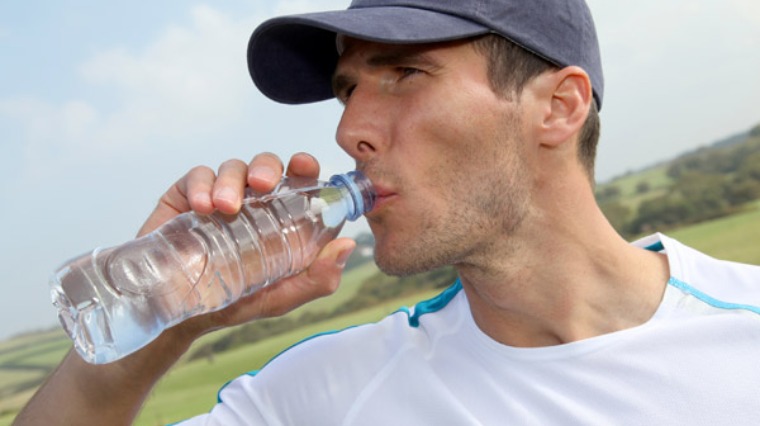When it comes to daily water intake to maintain normal bodily functions, we’ve all heard some common “theories.” For instance, the recommendation to drink eight glasses of water a day or to replenish fluids every 20 minutes during exercise. However, adhering to these general guidelines might not be sufficient, and in some cases, excessive water consumption can lead to water intoxication, posing a life-threatening risk.

Drinking water is a daily routine, but the “rules” surrounding it vary from person to person. In outdoor activities where frequent and substantial water intake is crucial, following these guidelines becomes vital for your health and, potentially, your life.
How to Identify Dehydration Symptoms and Hydrate Effectively:
01. Exercise & Hydration
Before Exercise:
- Pre-hydrate well in advance if you’re participating in an event, whether it’s a marathon, trail running, or team sports.
- Drinking enough water 12 hours before ensures your muscles have sufficient water, preventing unnecessary muscle issues.
During Exercise:
- A seemingly obvious guideline is to drink when you’re thirsty.
- However, defining “thirst” can be challenging in certain conditions, such as cold environments, where thirst might not be easily felt.
- Consider factors like temperature, humidity, exercise intensity, and clothing, as they affect your sensitivity to thirst.
- Listen to your body signals, and drink water when you feel thirsty.
- Prepare your preferred hydration tools, such as a backpack with a straw-equipped water bladder or easily accessible water bottles, making hydration hassle-free.
02. Emergency Measures
Recognizing Dehydration Signals:
- Dehydration symptoms are noticeable and include, from mild to severe: thirst, dizziness, confusion, or abnormal resting heart rate (either elevated or persistently high during rest).
- If you’re urinating less frequently than usual, consider increasing your water intake.
Mild Dehydration Solutions:
- For mild symptoms, take small sips of fluids like ice water, sports drinks, milk, or any beverage you find palatable.
- Avoid gulping down large quantities; sip slowly.
When to Seek Medical Attention:
- If experiencing more severe dehydration symptoms like confusion, nausea, or persistent vomiting, seek medical attention promptly.
- Familiarize yourself with medical aid stations along race routes or know the surrounding terrain for solo outdoor activities.
Train Yourself:
- Training is not just about improving performance but understanding your body.
- During training, recognize your hydration needs based on factors like environmental conditions, altitude, and personal health.
- Adjust your routine accordingly and, most importantly, listen to your body; if discomfort persists, consider stopping the activity.
Remember, preparation is key. Understand your hydration needs, especially during outdoor activities, and pay attention to your body’s signals. Stay hydrated responsibly to ensure a safe and enjoyable experience.

